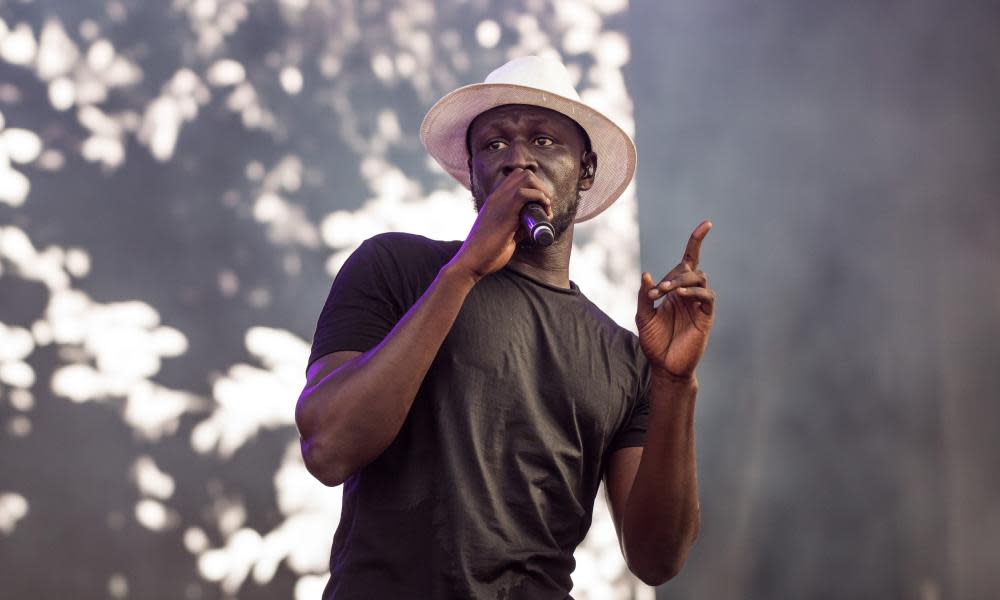Big up Stormzy. But Oxbridge must do more for black students

Stormzy is the people’s champion. In the past two years, he has proven himself to be one of the most committed public figures to furthering the interests of young black British people. He has made surprise appearances at youth sports days, access conferences and even singing at a funeral for a fan. From sponsoring Oxford University alumna Fiona Asiedu to take up a place at graduate school at Harvard, to launching the publishing imprint #MerkyBooks in partnership with Penguin, Stormzy has kept us on our toes, eagerly anticipating his next big move.
So I was proud to participate in a photoshoot last Friday to announce his latest initiative: a scholarship fund to cover the tuition and maintenance fees of two black students a year to study at my alma mater, Cambridge. Against the background of A-level results day and celebrations for those achieving top grades and entering their first choice of university, the scholarship has been met with roars of praise, hashtags of #blackexcellence and black students eagerly asking how they can secure one.
This pattern of education-focused philanthropy follows on from Beyoncé’s Formation Scholarships, with funds directed towards sponsoring African American students to take up places at historically black universities and colleges and other celebrities such as Alicia Keys, Oprah Winfrey, Nas and Nicki Minaj who have financed college places. The message from black public figures has been transatlantic: black students are as deserving of places at elite establishments as their white counterparts, and economic and systematic barriers will be clawed down.
However, whilst Stormzy deserves all credit for launching this initiative, the university itself should not be complacent about its need to commit and redouble its efforts in terms of access. On the day of the photoshoot, many of us were surprised to see the senior pro-vice-chancellor for education, Graham Virgo, attending and taking photos with us as a cohort. Don’t get me wrong, I was grateful for his presence and was pleased to have met him for the first time, but I couldn’t help but worry that this initiative was being co-opted as positive publicity for the university, particularly since black students and societies have struggled to get senior university figures to engage in discussing the problem of access.
There has been a lot of media coverage about the lack of black students getting into Oxbridge. Cambridge African and Caribbean Society’s Black Men of Cambridge photo in 2017 highlighted that only 15 black male students had been accepted in the university’s 2015 intake, and freedom of information enquiries conducted by the Labour MP David Lammy have shown that only one in four Cambridge colleges made offers to Black British students every year in the period 2010-2015.
Many assume that the universities are doing all they can to improve access, but fail to recognise the labour output of individual students of colour who lead these initiatives. Oxford and Cambridge’s African and Caribbean Societies both host an annual access conference for A-level and International Baccalaureate students, Cambridge students Courtney Daniella and Chiedza Matsvai both run YouTube channels where they discuss the black student experience at Cambridge and implore students of colour to take up space at Oxbridge. The previous access officer of the students’ union, Olivia Hylton-Pennant, has committed herself to outreach projects, particularly through launching the first access conference exclusively for Caribbean students, who represent a single-digit annual intake from 2011-2016 (excluding 2015).
This is not to say that the universities themselves have played no part in furthering access initiatives, and much credit should be given to schools liaison officers and public engagement teams. My own college, Pembroke, has been fantastic. As ethnic minorities officer, I was personally supported by the master when I elected to run a black and minority ethnic (BAME) open day, where he gave an inspiring speech on diversity and representation in the academy.
However, we cannot continue to rely on the grace of individuals for the issue of black students’ access to be taken seriously. It is not Stormzy’s responsibility to solve the problem of black student’s access, and it is not enough for the university to simply be grateful for the cash and kudos with no follow up-action. Cambridge needs to think about the experience that those students who take up the scholarship will have when they arrive. Increased funding and support for the students’ union, centralised access work for BAME students and direct support for black students in their own access work are necessary and overdue demands. How can the university celebrate black students being sponsored to attend if they still face a culture of racism, insufficient welfare structures, whitewashed curriculums, and an educational attainment gap?
For me, Cambridge was definitely a struggle, and grappling with institutional failures to address the sometimes hostile environment for black students defined my time. However, to incoming black students and the forthcoming Stormzy scholars, be inspired to take action and contribute to an established tradition of black students pushing for change. Congratulations, and make sure to continue the work which paves the way for more of us to enter.
• Jason Osamede Okundaye is a Cambridge University graduate and ex-president of Cambridge BME campaign

 Yahoo News
Yahoo News 
